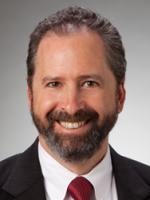On Monday February 22, 2021, the U.S. Supreme Court declined to grant certiorariin CareAlternatives v. United States (CareAlternatives), a case on appeal from the Third Circuit that could have assessed the issue of “objective falsity” under the federal False Claims Act (FCA). The Supreme Court’s rejection leaves standing the split among Circuit Courts on whether a whistleblower (Relator) must prove that a claim is objectively false in order to bring a successful FCA claim. This means that health care providers potentially face differing levels of FCA risk depending on where an FCA case is brought.
As we have previously discussed, federal courts are split on whether Relators must prove objective falsity. Both CareAlternatives and AseraCare v. U.S. (AseraCare), a case before the Eleventh Circuit, considered whether a physician’s subjective clinical judgment as to medical necessity could be deemed “false” for the purpose of FCA liability, or whether a claim must involve a fact that could be proven to be objectively false. Both cases involved allegations that physicians’ certifications of medical necessity for hospice services were false and thus sufficient for plaintiffs’ FCA allegations. The Eleventh Circuit in AseraCare adopted the objective falsity standard, holding that in order to show that a claim was false under the FCA, the Government must show “something more than the mere difference of reasonable opinion[.]” (938 F.3d 1278, 1297 (11th Cir. 2019)). In contrast, in CareAlternatives the Third Circuit rejected the objective falsity standard, andfound that a certification of medical necessity could be considered false if a jury determined that an expert physician’s review of the same medical records was more persuasive. (952 F.3d 89 (3d Cir. 2020)).
We are not surprised that the Supreme Court declined certiorari, in part because the rulings in both cases were very fact specific and were based on an unusual Medicare hospice regulation. More importantly, we think it is unlikely that the Supreme Court would have upheld a potentially major limitation on FCA liability had it taken the case based on the facts in CareAlternatives. We have seen in a number of cases that the Court is reluctant to endorse such broad limitations that are not in the language of the FCA itself. See e.g. Universal Health Servs., Inc. v. United States ex rel. Escobar, 136 S. Ct. 1989 (2016) (rejecting argument that FCA claims could not be based implied certifications of compliance). Therefore, although the Court’s rejection of the appeal may look like a loss for FCA defendants, it may be a better result than a ruling from the Court that could have limited falsity arguments in every Circuit.
Michael P. Matthews contributed to this article.









 />i
/>i
